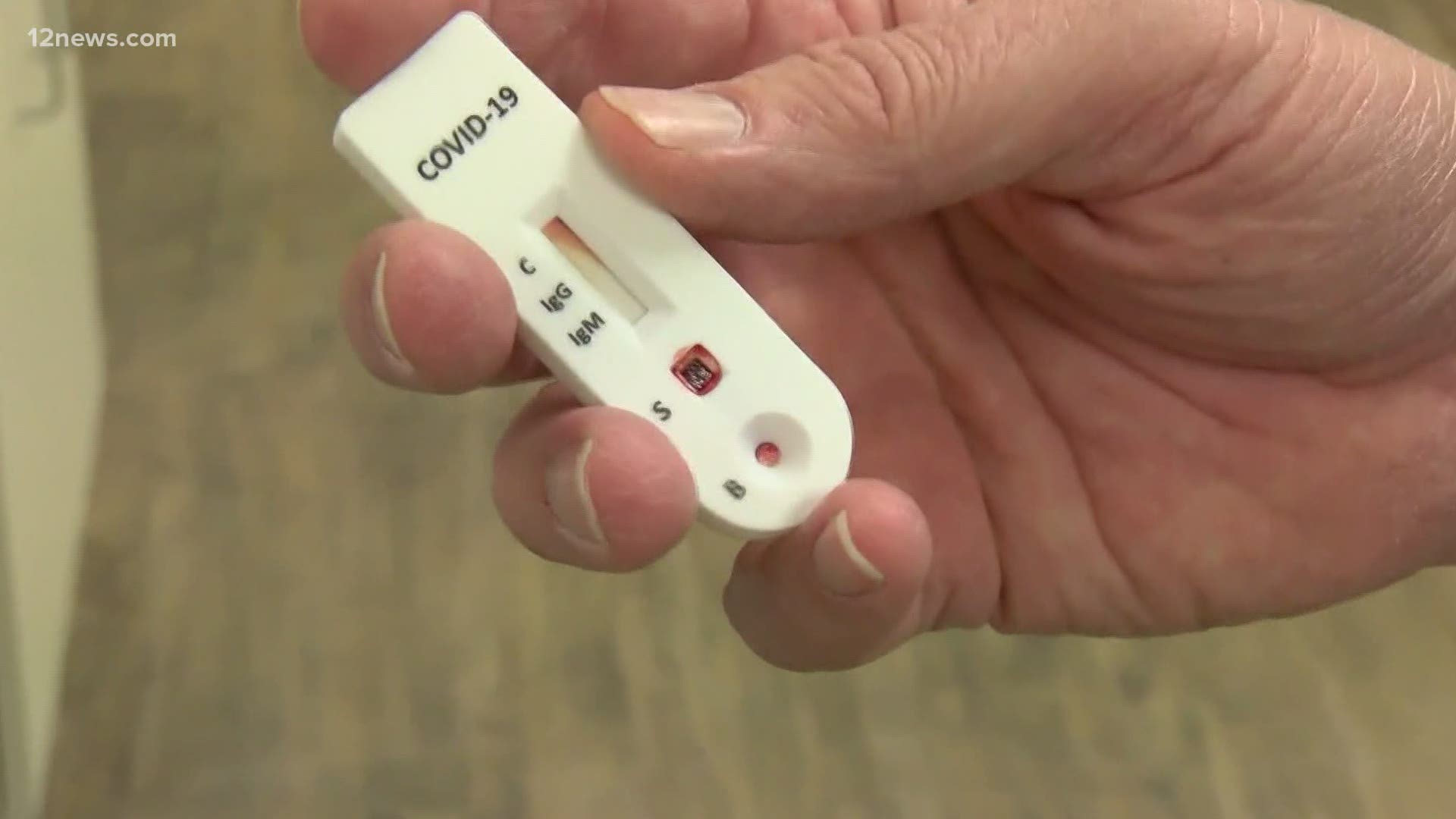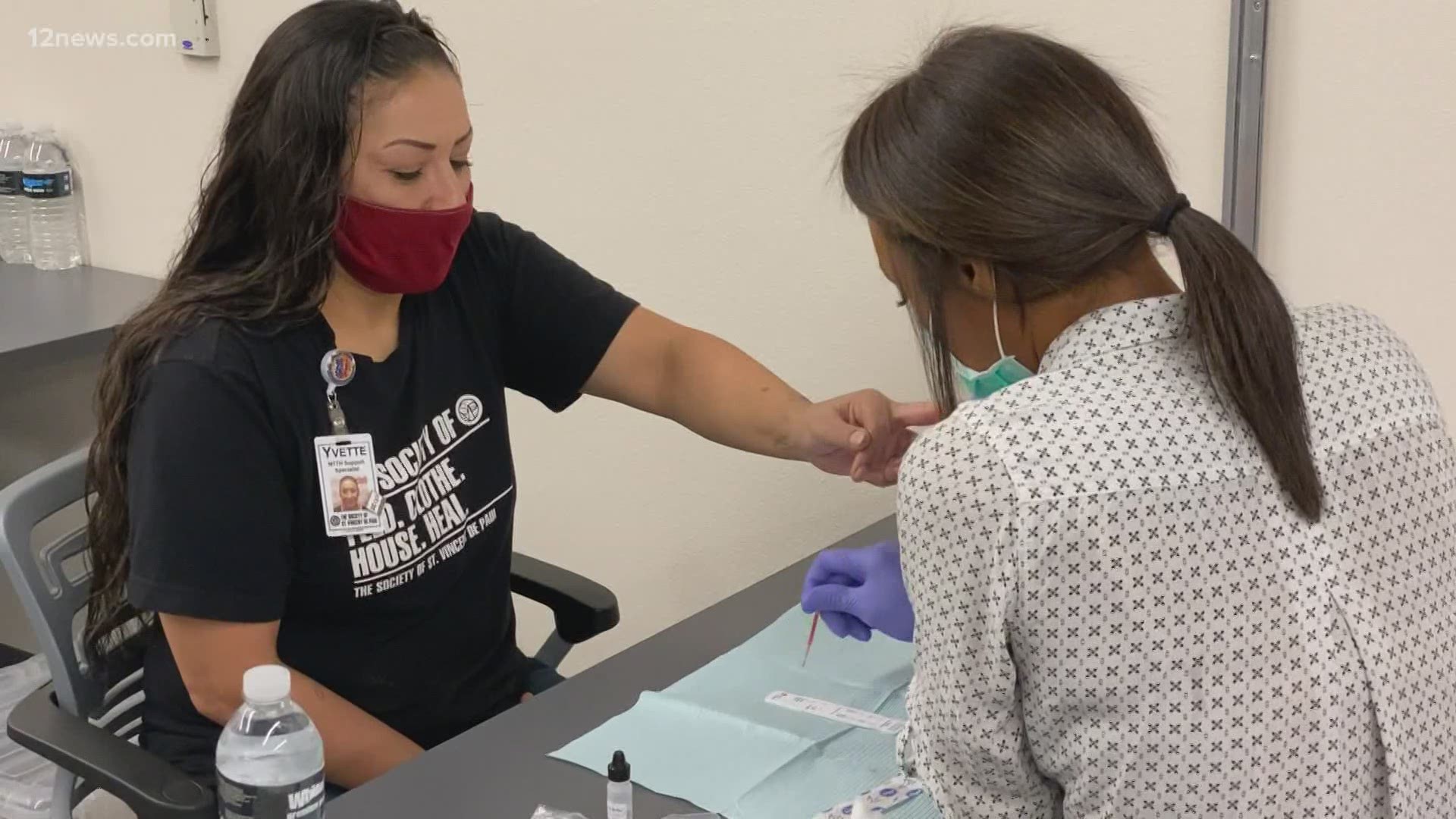PHOENIX — As Arizona prepares for a second round of a Saturday testing blitz, there are some things you should know before heading out to get tested.
Most testing sites across the state require some form of pre-registration.
There are other sites, like Dignity Health's spot in the Orange Parking lot outside the Cardinal's State Farm Stadium, that allow people to drive up. For the blitz, Dignity Health tells 12 News there are no assessments or medical evaluations being completed prior to the testing and if someone attests to being symptomatic or exposed, they will be tested.
You can check out all blitz testing sites and times on the AZDHS website.
Most testing sites are also doing diagnostic testing through nasal swabs that determine if you currently have COVID-19. This is different than an antibody blood test, which determines if you've ever had COVID-19.
Right now, the state is recording data for both kinds of tests, but experts warn the antibody tests might not always be accurate.
RELATED: On the front line: Providers testing for COVID-19 antibodies as the state issues testing blitz
"What it can tell you may be limited right now," explained Dr. John Altin, with TGen.
"We also know that some of these initial tests don’t have a really high level of performance," he added. "There are some false negatives and false positives that are possible."
Back in March, the FDA gave test manufacturers the green light to develop and market antibody tests that haven't undergone typical FDA approval to help meet the high demand for testing. Most tests you'd find today have what's called emergency use authorization or EUA.
The FDA does require all labs and manufacturers with EUA to put out disclaimers with tests. You'll probably have to look for it in the fine print when you do your research, but here's the takeaway: A negative result doesn't mean you haven't been infected or exposed to the virus; a positive result could come from another virus, like the flu; and the antibody test should not be the sole factor in any decision-making.
There are more than 100 antibody tests available on the market now and Dr. Will Humble, former head of AZDHS, says it's best to consult with your doctor about whether you need one and which test you should take.
"It’s not your job as one of the 7 million Arizonans to be able to independently evaluate which of these antibody tests are effective," he said. "It’s your doctor’s job."
As for TGen, Dr. Altin says they're still working on an anti-body test of their own and hope to get agency approval before they roll one out.
They're also working on an immunity study to help better pinpoint the role antibodies play and how antibody screening and testing can be most effective and what's needed for it to be widespread.
"Actually what we get is a landscape," Dr. Altin explained. "A rich landscape of thousands of viral fragments and we can determine if someone’s antibody is one pattern or another."
It's a citizen study, and they're calling on anyone in the U.S. who has tested positive for COVID-19 and has recovered to take part.
For more information or how you can participate, visit https://covidimmunity.org/.
RELATED: Is Arizona ready to reopen?


